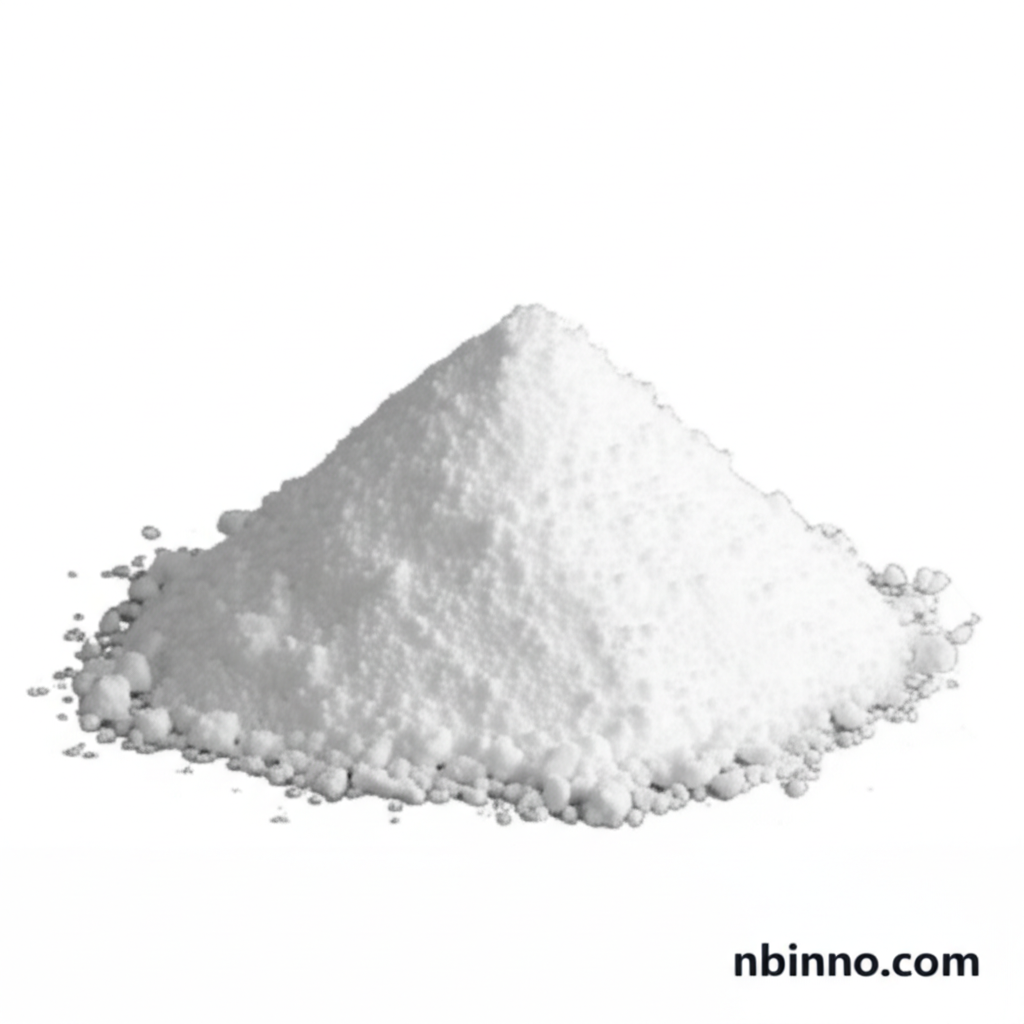Sodium Bis(trimethylsilyl)amide: A Potent Base for Chemical Synthesis
Discover the power of Sodium Bis(trimethylsilyl)amide (NaHMDS), a vital reagent for chemists and manufacturers seeking robust solutions in organic synthesis, metalation, and polymerization. Explore its critical role in driving innovation across pharmaceuticals and materials science.
Get a Quote & SampleUnlock Synthetic Possibilities with a Premier Supplier

High Purity Sodium Bis(trimethylsilyl)amide
As a leading manufacturer and supplier of specialty chemicals, we provide high-purity Sodium Bis(trimethylsilyl)amide (CAS 1070-89-9). This compound is indispensable for various chemical transformations, offering exceptional performance in deprotonation and metalation reactions. Trust our consistent supply chain for your manufacturing needs.
- Enhance Your Organic Synthesis: Utilize NaHMDS as a strong, non-nucleophilic base to efficiently deprotonate weak acids, facilitating the synthesis of complex organic molecules crucial for pharmaceutical development.
- Streamline Metalation Reactions: Our product is an ideal reagent for metalation processes, enabling the precise introduction of metal atoms into organic frameworks for catalyst and material innovation.
- Drive Anionic Polymerization: Benefit from its efficacy in initiating anionic polymerization, leading to specialty polymers with tailored properties for coatings and adhesives, a key application for chemical manufacturers.
- Secure Your Supply: As a reliable chemical supplier in China, we ensure stable availability and competitive pricing for Sodium Bis(trimethylsilyl)amide, supporting your production demands.
Key Advantages for Your Chemical Processes
Exceptional Basicity and Selectivity
Sodium Bis(trimethylsilyl)amide provides unparalleled strength as a base, enabling the deprotonation of even weakly acidic compounds, thereby expanding the scope of synthetic methodologies available to chemists in both R&D and production.
Versatile Solvent Compatibility
Our NaHMDS solutions are available in commonly used solvents such as Tetrahydrofuran (THF) and Toluene, offering excellent compatibility and stability that ensures reliable performance across diverse reaction conditions for your manufacturing processes.
Critical for Advanced Material Synthesis
This compound is vital for synthesizing organosilicon compounds and other advanced materials, playing a significant role in materials science and electronic applications. Purchase high-grade NaHMDS to meet your innovative material development needs.
Diverse Applications Across Industries
Organic Synthesis & Fine Chemicals
Sodium Bis(trimethylsilyl)amide is a cornerstone reagent for complex organic synthesis and the production of fine chemicals, enabling efficient reaction pathways for novel molecule creation. Many research scientists buy it for critical steps.
Pharmaceutical Intermediates
Its application in synthesizing pharmaceutical intermediates streamlines drug development, making it a sought-after compound by R&D scientists and procurement managers in the pharmaceutical sector.
Polymer Chemistry & Materials Science
Used as a catalyst or initiator in polymerization, it contributes to the development of specialty polymers and advanced materials with unique properties for industrial applications.
Catalysis and Metalation
Its ability to act as a strong base and facilitate metalation makes it invaluable in various catalytic processes and the creation of organometallic compounds for specialized chemical manufacturing.
